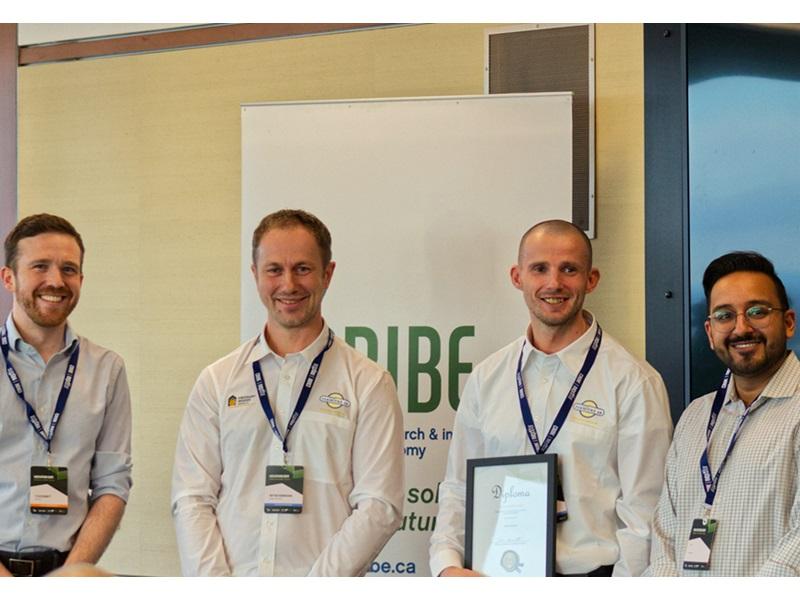
Requity Homes Inc., a Toronto-based technology company, hopes its rent-to-own model opens a more flexible path to a mortgage and home ownership for Canadians facing stumbling blocks in acquiring a home.
Founded in 2020 by CEO Amy Ding, Requity buys freehold starter homes and uses its suite of technology platforms to guide clients through a rent-to-own model. The company is seeing strong interest from potential buyers and has just completed a $26-million round of fundraising to expand its reach.
Requity operates in Northern Ontario, Alberta, Saskatchewan and Manitoba, concentrating its service on people who are struggling to get a mortgage due to their legal status or choice of career.
Ding told RENX Homes she hopes to make rent-to-own housing as common as the leasing model for car ownership.
“If lease-to-own a car is so common, and we know there should be something similar in home ownership because it costs more, because it makes sense for consumers to have that option to lock in the future buy-back price, I feel like there is something here from the customer perspective.”
From personal struggles to a business model
Requity was founded on Ding’s personal frustration with homeownership as an immigrant to Canada. She arrived here in 2010 as an international student at the University of Toronto for her master's degree in accounting. After graduating, she worked for BDO Canada and believed she built up the income, down payment, cleared debts and credit for a condo mortgage, intending to buy a home and settle long-term.
But her mortgage application was denied; she was told she required a steep down payment by the bank because she was on a work permit. The experience imprinted on her life.
“That was a really stressful experience for me personally because I didn’t have any financing condition. I put a large sum of deposit already. So I just didn’t think too much, I thought I had bad luck.”
Ding moved from accounting to finance at RBC, taking roles in equity research and venture capital. In the latter role, she was exposed to innovators in real estate tech.
Exposure to novel homeownership models from the U.S. captured her interest, leading her to form Requity to help Canadians deal with the types of hurdles she faced.
Rent-to-own has been explored in Canada as one strategy to help address the country's housing affordability both by governments and private sector.
Breaking in rent-to-own in Canada
Requity's model involves buying a property with its strategic partners and allowing the client to move in as they pay monthly toward a down payment that scales on the value of the house. Requity purchases freehold homes, such as detached or semi-detached properties, at or below $600,000 in smaller housing markets.
The client can buy the home from Requity at a pre-set price with cash or a mortgage, or cash out the savings.
Clients start by accessing an application portal that assesses pre-qualification and approval. A partner referral portal allows its partners to invite their clients and track the status of applications.
The target markets are people who have the cashflow to afford a home but cannot qualify for a mortgage, such as self-employed or gig workers; and newcomers to Canada who do not have the credit or work history to get a mortgage.
The company is developing a rent-to-own listing website where potential clients can see available homes, an automated underwriting system, and a homeownership coaching assistant with personalized tips to advise clients on achieving approval for a rent-to-own or a mortgage.
Though it is an unconventional option compared to homeowning or renting, Ding believes there is “huge potential if we do it right.”
Requity has received thousands of applications and has helped dozens of families, Ding said, and 80 per cent of Requity’s customers have bought a home in 18 months on average, according to a release.
Rent-to-own is not a model for everyone, Ding said. If a customer qualifies for a mortgage, she generally advises them to sign the loan.
The company’s staff of four people will be growing thanks to a $26-million financing round.
Funding the vision for Requity
The funding was co-led by Highline Beta and investor Sam Sun, with participation from Boardwalk Investment Ltd., Conconi Growth Partners, investor Mike Dobbins, unnamed angel investors, and new participants including the Archangel Adrenaline Fund.
“Our ongoing support for Requity Homes affirms our belief in their commitment to build a homeownership company that consumers can trust,” Sam Kolias, the CEO of Boardwalk REIT, said in a release.
Requity will use the funding to buy more homes in its existing areas of service and make more hires over the coming year, according to Ding. She hopes to grow Requity to serve clients coast-to-cost.
She attributed the success of the funding round to her efforts to build strong relationships with investors and keep them informed about progress, despite the challenges raising capital in today’s market and operating under a rent-to-own model.
The funding builds on the $1.2 million Requity raised in December 2021.
To find other solutions for homeowning accessibility in Canada, Ding said she is seeking partnerships with traditional real estate players for collaboration on developing other innovative models.










